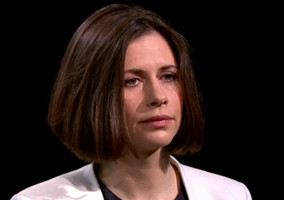The human resources departments at charities do not have the "clout" to challenge senior leaders when issues arise, whistleblowers told a BBC Radio 4 programme.
Speaking on Radio 4’s You & Yours show, two charity workers talked about their own struggles at two unnamed charities when they reported issues of bullying and sexual harassment to their HR teams, and were then asked to sign non-disclosure agreements.
The show spoke to two workers who had previously worked at large charities, whose identities were not revealed. Referred to as Helen and Audrey, they both said that they had been silenced when raising concerns with HR departments at the charities where they worked.
Helen said that in her dealings with charity HR departments, she often experienced: “A culture that isn’t familiar with examining itself, they often don’t have good leadership or management, and that goes for very large ones and very small ones. There are no hard and fast rules.
“Their HR departments are often small and very much concerned with the nuts and bolts of recruitment and paperwork, and when it comes to leadership or people management and big issues, they often don’t have the clout. And they are not able to go up against people more senior than them.”
‘Competitive culture’
Audrey said that in her experiences of raising concerns with charity HR departments, that “you get a strong sense that when you are pointing a finger at an employee, you are also pointing a finger at the charity”.
She said that there is often a “competitive culture” within charities, which the charities themselves either sanction or do not want to know about.
Audrey and Helen both signed non-disclosure agreements with the charities they had worked for on leaving.
Helen said that she had to agree to not talk about what had happened, but said that this has been difficult and said she had often wished she hadn’t signed the agreement and taken the money offered.
She said that this is because: “It hasn’t been good for me that I haven’t been able to talk about that. It is not good for the organisation because they don’t address the issue, the person that I accused of bullying and the chief executive of that charity are still in place.”
Asked why she took the money from the charity, she said: “I think there is also this obligation on people working for a charity to put themselves last, and of course you want as many funds as possible from the charity to go to the beneficiaries but in order to do that, they need to be running a proper business and with good leadership.”
She said she welcomed the current scrutiny on charities, not because she doesn’t think a lot of them to very good work, but because: “They do need more challenge in order to ensure that they are doing the best job they can and that they are supporting their own staff to do that job.”
Also speaking on You & Yours was Lucy McLynn, a partner at law firm Bates Wells Braithwaite, who said that if someone is a whistleblower, which means they are making disclosures in the public interest, they then cannot be gagged under a settlement agreement.
|
Related articles












